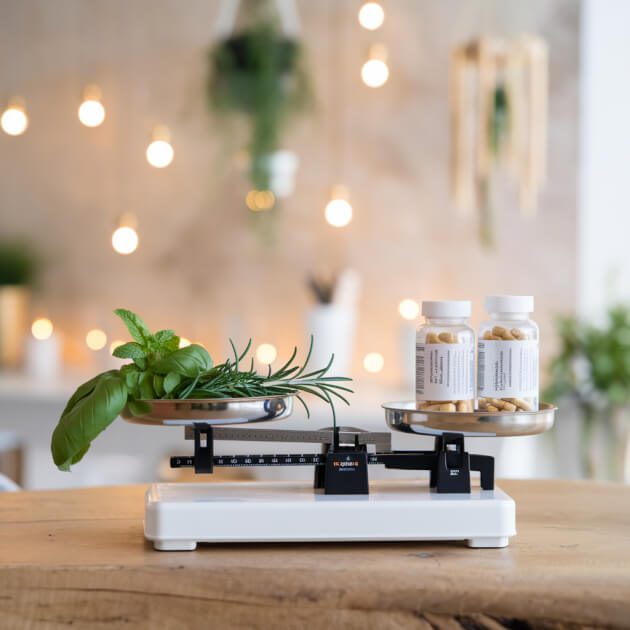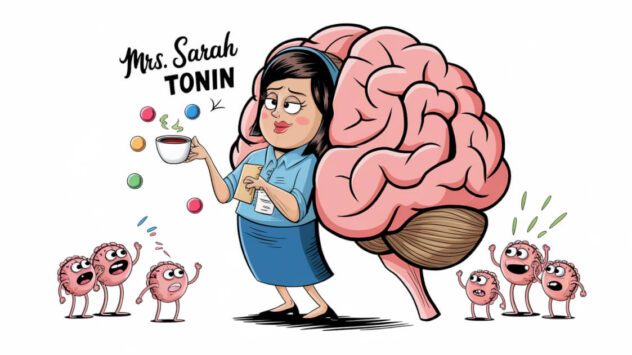Herbal Supplements: Benefits and Risks
Herbal Supplements: Benefits and Risks are rarely considered when people start adding them to their routine. You pick up a bottle of turmeric capsules, pop an ashwagandha gummy, or mix some ginseng powder into your tea, because hey, they’re natural, so they must be safe… right?
Well, not always. Herbal Supplements: Benefits and Risks go hand in hand. Some herbs have incredible health benefits backed by research, while others interact badly with medications, cause unwanted side effects, or are totally ineffective. Worse, some supplements don’t even contain what’s on the label.
So let’s talk about what actually works, what’s risky, and how to use herbal supplements safely without accidentally sending yourself to A&E.
Unlock peak brain performance with science-backed biohacks. Join free now & get your guide for just £4.99 (45% off)!

The appeal of herbal supplements
Herbal supplements are like that one friend who always looks effortlessly put together. They’ve been used for centuries, they seem completely natural, and they don’t require a prescription. So of course, people love them.
Why do so many swear by them?
- They’re natural – which people assume means safe (spoiler: not always)
- They’re accessible – no need to beg a doctor for a prescription
- They’re holistic – appealing to those who prefer an all-around approach to wellness
- They seem to have fewer side effects – compared to some prescription drugs
But do they always work? Are they always safe? Time to get into the real details.
Common herbal supplements and their benefits
Some herbal supplements absolutely deliver on their promises. Here’s a look at the most popular ones—plus the potential downsides nobody talks about.
Turmeric (Curcuma longa)
Why people love it: It’s anti-inflammatory, antioxidant-rich, and supposedly good for everything from joint pain to brain fog.
Reality check: If you have iron deficiency, turmeric might make it worse. It thins the blood, so pairing it with aspirin or other blood thinners is a terrible idea unless you enjoy spontaneous nosebleeds.
Ashwagandha (Withania somnifera)
Why people love it: It’s an adaptogen, meaning it helps your body handle stress. It’s been linked to better sleep, hormone balance, and even improved focus.
Reality check: Not safe for pregnant or breastfeeding women. If you already have low blood pressure or take thyroid medication, this herb might throw your system into chaos. Some people also report nausea and stomach issues. In rare cases, high doses have been linked to liver damage.
Ginkgo biloba
Why people love it: Used for centuries to support brain health, it may improve memory, focus, and circulation. Some studies suggest it could help slow cognitive decline in conditions like dementia.
Reality check: Thins the blood, increasing the risk of bleeding—bad news if you’re already on blood thinners. Can cause headaches, dizziness, and digestive issues.
Elderberry (Sambucus nigra)
Why people love it: Packed with antioxidants and vitamins that support the immune system. Often taken during cold and flu season to reduce symptoms.
Reality check: Raw elderberries are toxic and must be properly cooked. Some products contain added sugars or fillers that counteract the benefits.
St. John’s Wort
Why people love it: Used as a natural antidepressant. Some studies suggest it can help with mild to moderate depression.
Reality check: One of the worst offenders for drug interactions. It can make birth control, antidepressants, and blood thinners less effective. Also increases sun sensitivity, so enjoy your accidental sunburn.
The risks of herbal supplements
Now for the bit most people don’t think about. Yes, herbs can be powerful, but that means they can also be problematic.
Lack of regulation
Unlike prescription medications, herbal supplements aren’t strictly regulated. In some countries, they’re classified as food rather than medicine, meaning companies don’t need to prove they work before selling them.
Contamination and false labelling
Tests on some supplements have found traces of heavy metals, pesticides, and even prescription drugs mixed in. Some don’t even contain the herb they claim to! Buying from reputable brands is essential.
Drug interactions
Many herbal supplements interfere with medications. Some enhance their effects (dangerous if we’re talking about blood thinners or sedatives), while others block them entirely. St. John’s Wort, ginseng, and ginkgo biloba are the worst culprits for this.
Side effects
Herbs may be natural, but that doesn’t mean your body always welcomes them with open arms. Common side effects include digestive issues, allergic reactions, headaches, dizziness, and hormone imbalances.
How to use herbal supplements safely
To enjoy the benefits without the risks, here’s what to do:
- Check for interactions. If you’re on any medication, research how an herb might interfere. Speak to a doctor or pharmacist.
- Start slow. Don’t load up on multiple herbs at once. Try one at a time and watch how your body reacts.
- Buy from reputable sources. Look for third-party testing, organic certifications, and transparency in ingredients.
- Follow dosing instructions. More isn’t always better. Stick to the recommended dosage.
- Pay attention to side effects. If something feels off—stop taking it.
Conclusion
Herbal supplements can be a fantastic addition to your health routine when used wisely. They offer real benefits but aren’t without risks. Just because it’s natural doesn’t mean it’s safe, so a little research goes a long way.
Join our community
If you want to learn more about herbal supplements, ADHD-friendly nutrition, and biohacking for neurodivergence, join our community at herbalbiohacker.com. Share your experiences, ask questions, and get insights from others on the same journey.







